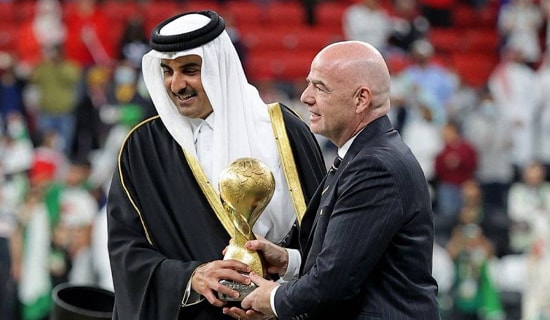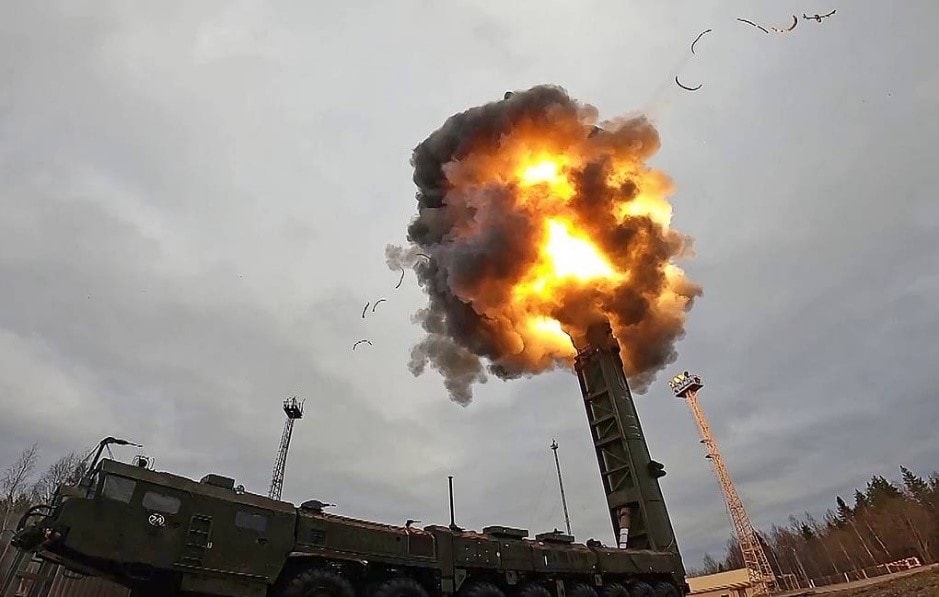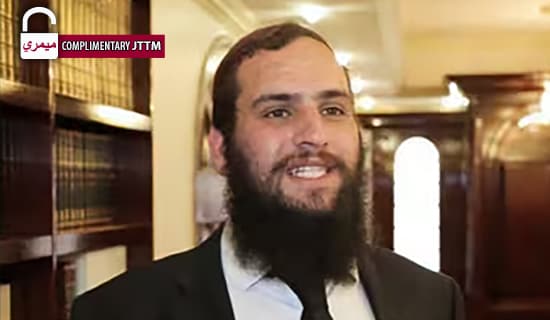On October 28, 2020, Russian media outlet Kommersant.ru published an article, titled "To Karabakh Via The Hindu Kush," assessing that Pakistani fighters participated in the Nagorno-Karabakh conflict on the side of Turkey and Azerbaijan. Kommersant also stressed that, while denying military assistance from Pakistan, Baku does not hide that the Karabakh conflict has led to a close rapprochement of Azerbaijan, Turkey, and Pakistan, creating a new strategic triangle in Eurasia.
Kommersant.ru quotes Andrey Serenko, an analyst at the Russian think tank Center for the Study of Contemporary Afghanistan, concluding that the current close partnership of Turkey, Pakistan, and Azerbaijan in the Karabakh war may be the beginning of a new long-term geopolitical alliance focused on supporting Ankara's neo-Ottoman ambitions.
It is worth noting that on January 13, 2021, Azerbaijan invited Pakistan and Turkey to rebuild Karabakh, at the second trilateral meeting in Islamabad between the three countries, attended by Turkish Foreign Minister Mevlüt Çavuşoğlu, and his Pakistani and Azerbaijani counterparts, Shah Mahmood Qureshi and Jeyhun Bayramov. Turkish media outlet TRT reported that "Azerbaijan's Bayramov hailed the support of Turkey and Pakistan in solving the Karabakh conflict and invited Pakistani and Turkish firms to help rebuild the Karabakh region recently liberated from the Armenian occupation," adding that "Bayramov said the three nations shared very strong bonds, the most important of which was a common vision and a 'solid foundation for growing cooperation.'"
TRT then stressed that the three countries discussed the situation in Kashmir and Afghanistan. "Expressing concern over 'grave' human rights violations in the disputed India-administered Kashmir, and rising anti-Muslim sentiment, they agreed to launch joint efforts to defend Islamic values. The three foreign ministers, the statement said, also discussed the ongoing Afghan peace process, which aims to bring an end to a 19-year conflict in the war-torn country. Throwing their weight behind the fragile process, the meeting hailed Pakistan's role to facilitate the talks... Pakistan's Qureshi thanked his counterparts for attending the meeting, noting that the top diplomats decided to intensify and deepen the trilateral cooperation. He thanked Ankara for its consistent support to Islamabad on the Kashmir dispute."
TRT also underlined that Pakistani Foreign Minister Qureshi concluded the meeting reiterating "Islamabad's support to Turkey on the Turkish Republic of Northern Cyprus."[1]

Pakistani FM Shah Mahmood Qureshi, Turkish FM Mevlüt Çavuşoğlu, and Azeri FM Jeyhun Bayramov at the second trilateral meeting in Islamabad, on January 13, 2020 (source: AFP).
Following is Kommersant.ru's article:[2]
"Another Influential Player Has Emerged In The Transcaucasian Conflict: Pakistan"
"Against the backdrop of the dispute over the Turkey's role in the hostilities in Nagorno-Karabakh, another influential player has emerged in the Transcaucasian conflict: Pakistan. In an interview with the Indian TV channel WION, Armenian Prime Minister Nikol Pashinyan said that 'militants from Pakistan are also taking part in the Karabakh war.' With this statement, the Armenian leader continued the polemic with Azerbaijani President Ilham Aliyev, who earlier called the previous statements of Yerevan that 'soldiers from Turkey and Pakistan are fighting on the side of Baku' to be 'an absolute lie.' However, while denying military assistance from Pakistan, Baku does not hide, that the Karabakh conflict has led to a close rapprochement of Azerbaijan, Turkey, and Pakistan, creating a new strategic triangle in Eurasia.
"Armenian Prime Minister Nikol Pashinyan made a new resounding statement about the external forces involved in the Karabakh conflict, after the humanitarian truce, agreed upon by Armenian Foreign Minister Zohrab Mnatsakanyan and Azerbaijani Foreign Minister Jeyhun Bayramov in Washington at the end of last week,[3] which fell through like the previous two.
"In an interview with the Indian TV channel WION, which he gave last Sunday [October 25, 2020],[4] the Armenian leader listed the forces which, according to his information, are involved in the conflict on the side of the Azerbaijani army. That fact time after time leads to the disruption of diplomatic efforts. 'Today, Azerbaijan is not only involved in the war against Nagorno-Karabakh, but also against Turkey and the terrorist mercenaries transferred to the war zone by Turkey from Syria. Can you imagine what a mixed and chaotic situation we are dealing with? By the way, we have information that militants from Pakistan are also taking part in the war against Karabakh,' [Armenian] Prime Minister Pashinyan noted. He also stated that the Armenian side had already passed on to international partners all the information on the participation of foreign mercenaries in the hostilities, calling on 'to put an end to the presence of terrorists in the region.'
"This is not the first time the Armenian leader has spoken about Pakistan's active role in the conflict. He made a previous such statement on October 15, answering the questions of 'RIA Novosti' media about the situation in Nagorno-Karabakh. Later, President of Azerbaijan Ilham Aliyev reacted to it: 'Armenian Prime Minister Nikol Pashinyan said that soldiers from Turkey, Pakistan, Syria and Libya are allegedly fighting on the Azerbaijani side. This is an absolute lie. It is not difficult to expose this lie,' said Ilham Aliyev in an interview with Turkish TV channel A Haber and added: 'Turkey and Pakistan are the countries that support us. But [their] military assistance is out of the question. This is unnecessary.'
"However, while categorically denying the military component of their cooperation on Karabakh, Baku and Islamabad do not hide the fact that they provide each other full political and diplomatic support."
"The Main Reason For Islamabad's Involvement In The Karabakh Game Lies In The Special Pakistani-Turkish Relations"
"This was confirmed last week by [Jeyhun Bayramov's] telephone conversation with Pakistani Foreign Minister Shah Mahmoud Qureshi, on the eve of [Azerbaijani Foreign Minister] Jeyhun Bayramov's visit to Washington.[5] As a result of the conversation, the Pakistani diplomatic department expressed 'complete solidarity with the brotherly people of Azerbaijan in this difficult time.' 'Pakistan believes in the restoration of the territorial integrity and sovereignty of Azerbaijan over Nagorno-Karabakh and the occupied territories of Azerbaijan and expresses deep concern over the reprehensible attacks and killings of civilians by Armenian forces,' the Pakistani Foreign Ministry said in a statement.
"It is worth noting that by providing Baku with political support on Karabakh, Islamabad in return receives Azerbaijan's support on the Kashmir issue, which remains the main irritant in country's relations with India. 'Islamabad appreciates Azerbaijan's support for Pakistan in the dispute over Jammu and Kashmir in various international forums, including the contact group of the Organization of Islamic Cooperation on Jammu and Kashmir,' said Shah Mahmoud Qureshi last week. In addition to the platform of the Organization of Islamic Cooperation mentioned by the Pakistani minister, which discusses the Kashmir issue, Islamabad counts on the help of the Non-Aligned Movement, which unites more than 130 states, and is currently chaired by Azerbaijan.
"Meanwhile, the Karabakh conflict leads to the accelerated formation of the Baku-Ankara-Islamabad triangle, whose participants talk about the 'brotherly relations,' which bind them.
"'The main reason for Islamabad's involvement in the Karabakh game lies in the special Pakistani-Turkish relations. The top officers of the Pakistani army have always cherished the alliance with Ankara. And so much so that not a single top political leader of Pakistan since the collapse of the USSR in 1991 has recognized the independence of Armenia. Still there are no diplomatic relations between Islamabad and Yerevan,' Andrey Serenko, head of the Center for the Study of Afghan Politics, stated.
"'Recently, news arrived about the recruitment of militants in Pakistan to participate in the Karabakh conflict – this is yet another [friendly] gesture of the Pakistani military toward the Turkish ally. By itself, the Karabakh issue is of little interest to Islamabad. This is important for Islamabad in the context of Turkey's interests, in order to strengthen the strategic partnership of the two largest Sunni authoritarian republics. At the same time, the Pakistani army and special services are not acting officially, but in the way they have been accustomed to during the many years of hybrid wars against Afghanistan and India – by using a network of terrorist organizations controlled by the Pakistani Interdepartmental Intelligence Service, for example: Jamaat-e-Islami, Jaish-e-Muhammad, Al-Badr, as well as via their madrasas, mosques and recruiting infrastructure,' Serenko continued.
"According to informed sources of Kommersant in Peshawar, Pakistan, 'at least one group of militants with weapons and ammunition has already been sent to Karabakh a few weeks ago.'
"'The current close partnership of Turkey, Pakistan, and Azerbaijan in the Karabakh war may be the beginning of a new long-term geopolitical alliance focused on supporting Ankara's neo-Ottoman ambitions. The Karabakh escalation was only a catalyst for launching of this super project,' Andrey Serenko concluded."
[1] Trtworld.com/asia/azerbaijan-invites-pakistan-turkey-to-rebuild-karabakh-43232, January 13, 2021.
[2] Kommersant.ru/doc/4549481, October 28, 2020. See also MEMRI Special No. 9095, Russian Media Outlet Ogoniok: Pakistani Militants Fought In 'Karabakh Jihad' On The Turkey-Azerbaijan Side, December 17, 2020.
[3] State.gov/u-s-armenia-azerbaijan-joint-statement, October 25, 2020.
[4] Youtube.com/watch?v=PY362jKx8iU, October 25, 2020.
[5] App.com.pk/photos-section/islamabad-october-20-foreign-minister-makhdoom-shah-mahmood-qureshi-in-a-telephonic-conversation-with-the-foreign-minister-of-azerbaijan-jeyhun-bayramov-app, October 20, 2020.








